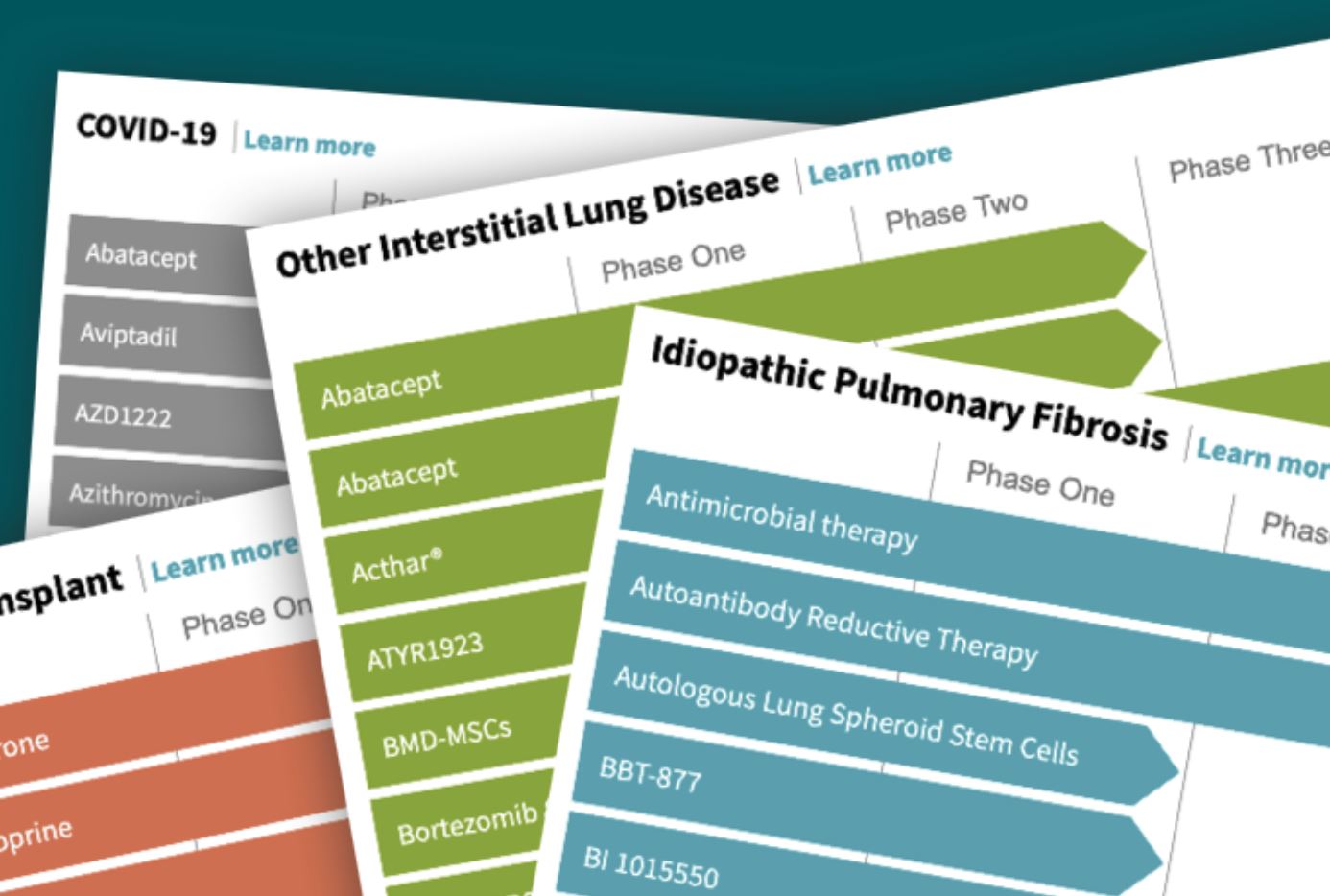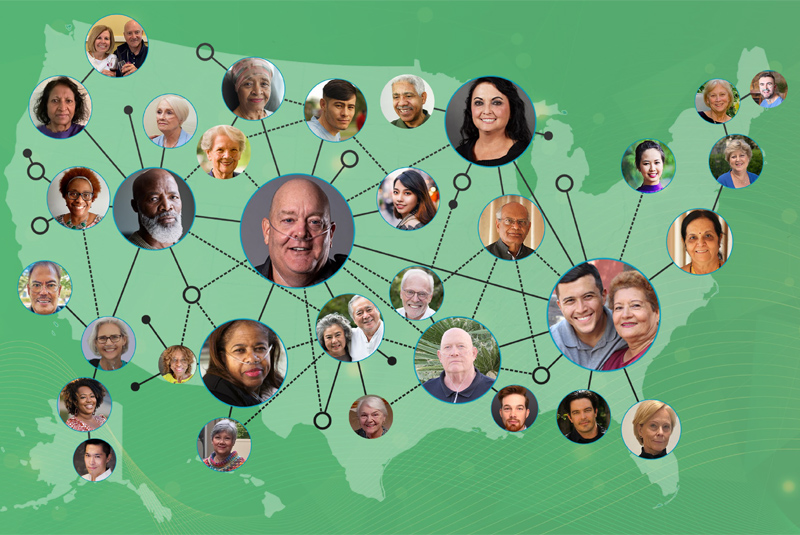Clinical Trials Education Center

About Clinical Trials
Clinical trials for pulmonary fibrosis (PF) and interstitial lung disease (ILD) treatment are research studies that explore whether a medical strategy, treatment, or device is safe and effective for humans. These studies may also show which medical approaches work best for certain illnesses or groups of people. Clinical trials for PF and ILD treatment produce the best data available for health care decision making.
The purpose of clinical trials is research, so the studies follow strict scientific standards. These standards protect patients and help produce reliable study results.
To read more, download our booklet below.
Find a Clinical Trial
The PFF Clinical Trial Finder is a comprehensive list of clinical trials for PF and ILD.
New! The Clinical Trials Blog
Take 5 minutes to read our new blog about clinical trials!
Find Care Center, Support Group, and Clinical Trial Locations
To find Care Center or Support Group locations turn on Location Services or enter a Zip Code.

Drug Development Pipeline for PF and ILD
In the Drug Development Pipeline, you can learn about the latest drug developments for PF and ILD. Use the filters on the left-hand side to narrow results by study phase, intervention type, condition, and more.
The PFF Community Registry
The Pulmonary Fibrosis Foundation is leading the fight by funding promising research and we need your help.
One of our key research programs is the PFF Community Registry. We invite eligible participants to join by completing a series of simple surveys. Your survey responses will be used by researchers to better understand how PF and ILD progress over time, respond to treatments, and how the diseases affect individuals. The more individuals who join and provide responses, the closer we come to a cure.
Eligible participants include:
- Patients living with PF and ILD
- Lung transplant recipients who have had PF or ILD
- Caregivers and biological family members of patients with PF or ILD, including those who have passed away
Enrolling in the PFF Community Registry is entirely online. All you need is internet access. Learn more about this groundbreaking program by visiting the PFF Community Registry homepage.

Phases of Clinical Trials
Clinical trials investigate dosage, safety, efficacy and potential outcomes of drugs or treatments in disease-specific populations through controlled trials. There are typically three stages or phases of clinical trials that must be performed before a drug or treatment may be submitted to regulatory agencies (ie: U.S. Food & Drug Administration) for approval. Prior to commencing a clinical trial, a drug must have demonstrated safety and efficacy in a laboratory model.
Phase 1
Researchers test a new drug or treatment in a small group of people (usually 20-100 volunteers) for the first time to evaluate its safety, determine a safe dosage range, and identify side effects. Doses start small and increase in different patient groups until the desired effect of the treatment is observed or side effects of the treatment become too severe.
Phase 2
The drug or treatment is given to a larger group of people (up to several hundred volunteers) to see if it is effective and to further evaluate its safety. Most Phase 2 studies have randomized control (placebo) groups and treatment groups. Most of these trials are “double-blind” which means that neither the patients nor the researchers know whether the patient is receiving the treatment or placebo.
Phase 3
The drug or treatment is given to large groups of people (several hundred to thousands of volunteers) to confirm its effectiveness, monitor side effects, compare it to commonly used treatments (or placebo), and collect information that will allow the drug or treatment to be used safely. Phase 3 trials are also randomized and most are double-blind.
Phase 4
The drug or treatment has been FDA approved for marketing. These studies can include post-market requirement and commitment studies that are required of or agreed to by the study sponsor. Phase 4 trials gather additional information about a drug's safety, efficacy, or optimal use.
